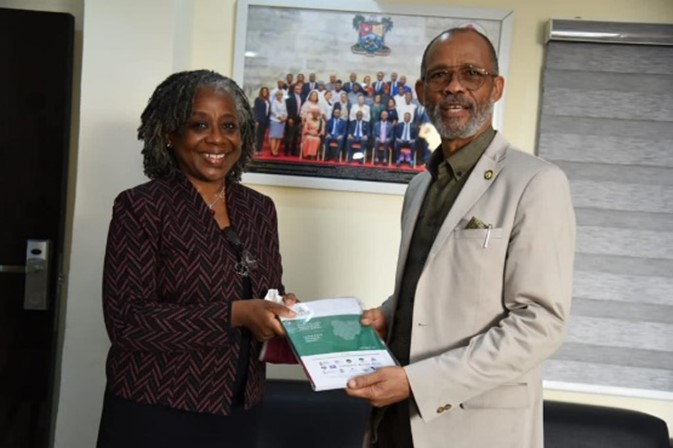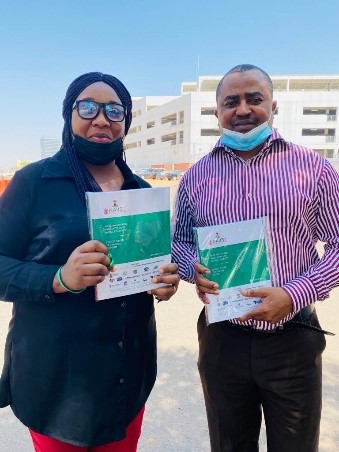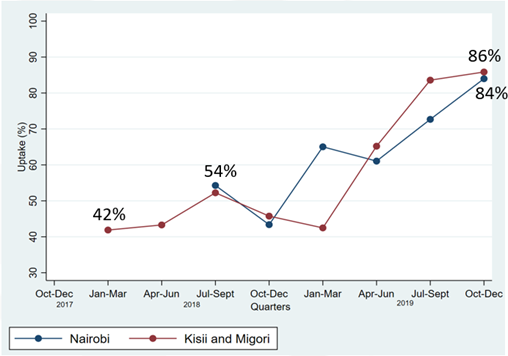March 08, 2022
The Nigeria HIV/AIDS Indicator and Impact Survey (NAIIS), a population-based HIV Impact Assessment (PHIA), was conducted in 2018 to assess the prevalence of key HIV-related health indicators. Implemented by the NAIIS Consortium led by the University of Maryland, Baltimore (UMB) Nigeria, with funding from PEPFAR and The Global Fund, NAIIS provided pivotal information on the progress towards achieving the UNAIDS 90-90-90 targets in Nigeria, and that information has since been applied in policy making and strategic HIV program planning.

Handover of the Lagos State NAIIS Technical Report to the Lagos State Commissioner for Health, Dr. Akin Abayomi, by Dr. Sylvia Adebajo, Country Director, UMB Nigeria
Before NAIIS commenced, Lagos state had reached an advanced stage in preparation for the Lagos AIDS Indicator Survey (LAGAIS). Following an agreement with the Lagos State Government (LSG), LAGAIS was absorbed into NAIIS. At the request of the LSG, the NAIIS sample design was adjusted to oversample Lagos State to obtain stable estimates of HIV prevalence across its 20 LGAs. UMB worked with the Lagos State Government team to analyze findings, leading to a robust set of results for the state. Upon completion of the NAIIS survey, a comprehensive National Technical Report on NAIIS was presented to the Government of Nigeria in September 2020, and recently in February 2022, the Lagos state NAIIS Technical Report was handed over to the Lagos State government and to CDC Nigeria.
Ciheb Nigeria proudly celebrates this significant achievement.

Handover of the Lagos State NAIIS Technical Report to representative of CDC Nigeria by Dr. Ibrahim Baffa
Contact
Center for International Health, Education, and Biosecurity
Institute of Human Virology
Tyler New
Scientific Writer
tnew@ihv.umaryland.edu
Related stories

Wednesday, June 01, 2022
New Ciheb Report Compares DSD and Conventional Care
The University of Maryland, Baltimore (UMB) and Ciheb-Kenya recently released a report, “Evaluation of Differentiated Service Delivery Model,” which summarizes results, as related to DSD, from its PACT Endeleza and PACT Timiza programs in Kenya. The evaluation focused on the effect of multi-month dispensing (MMD) (three months or more) compared to conventional care.

